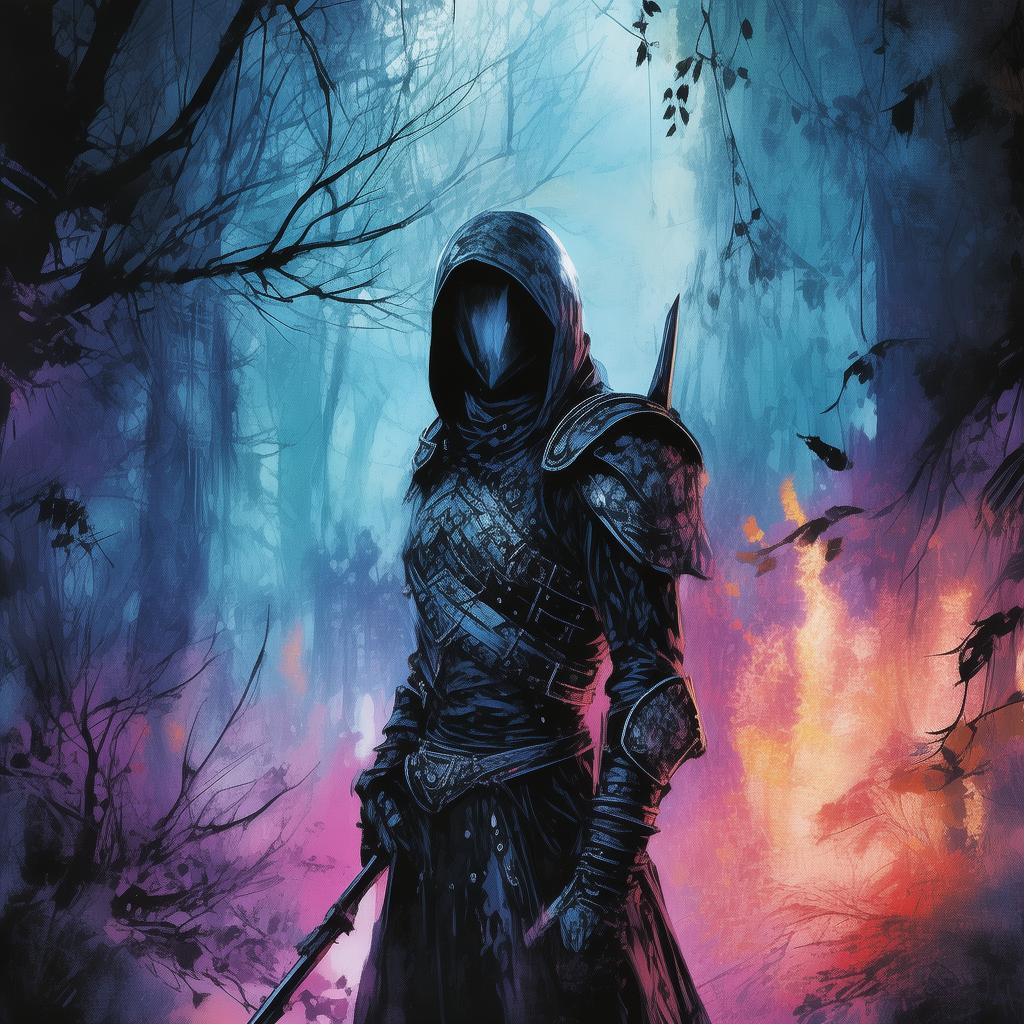The Melody of Fate: A Symphony of Love and Betrayal
In the heart of the ancient city of Elysium, where the air hummed with the ethereal sounds of celestial choirs, lived a young woman named Aria. She was the daughter of a renowned composer and a virtuoso violinist, but she was destined for greatness in her own right. Aria's soul resonated with the music of the cosmos, and she felt an inexplicable connection to the melodies that danced through her dreams.
As a child, Aria would often wander the halls of her father's music conservatory, her tiny fingers tracing the notes of sheet music as if they were the very strings of her heart. Her father, Elion, was a maestro of the highest order, but he was a man who had seen the depths of human suffering and the heights of divine grace. He passed on to Aria not just his skill but also his wisdom, teaching her that music was a powerful force, capable of healing and destroying alike.
When Aria turned twenty, she felt the call to compose her first symphony. It was to be a celebration of life, a reflection of the beauty and pain that she had witnessed in the world. She called her symphony "The Mythic Symphony," and she envisioned it as a tapestry of melodies, each thread woven from the very essence of human experience.
As she worked on the symphony, Aria found herself drawn to a particular melody, one that seemed to echo through the very fabric of her being. It was a hauntingly beautiful tune, filled with a sense of sorrow and longing. She became obsessed with it, unable to shake the feeling that it was more than just a piece of music—it was a message, a whisper from the past.
One evening, as Aria sat in her study, lost in the world of her symphony, a knock came at the door. It was an old man, his eyes wise and weary, who introduced himself as Zephyros, a guardian of the ancient music traditions. He told Aria that the melody she had discovered was a fragment of a lost symphony, "The Final Chorus," composed by a mythical composer who had once walked the earth.
"The Final Chorus," Zephyros explained, "was said to be a symphony of fate, weaving the threads of life, love, and betrayal into a tapestry of cosmic significance. But it was also a dangerous melody, one that could only be played by a pure soul."
Aria was captivated by the story and felt an irresistible pull towards the melody. She asked Zephyros to teach her everything he knew about the symphony, and he agreed, on the condition that she would perform the Final Chorus at a grand concert, open to all who could hear it.
Days turned into weeks, and Aria's life became a whirlwind of preparation. She poured her heart and soul into the symphony, and the melodies of "The Final Chorus" began to manifest themselves in her compositions. Her father, who had always been her closest confidant, noticed the change in her, the intensity and depth of her emotions.
As the day of the concert approached, a shadow of doubt fell over Aria. She was torn between her love for her father and her growing fascination with the mysterious symphony. She confided in him, and Elion, ever the protector, offered to accompany her on the violin, ensuring that the concert would be a triumph.
The night of the concert was a spectacle of light and sound, as Aria and her father performed their masterpiece to a captivated audience. The music was a tapestry of emotions, from the soaring, hopeful melodies of life to the somber, introspective tunes of loss. As the final chorus played, the audience was silent, enveloped in the beauty and power of the music.
But the true magic of the symphony was not in the performance but in the aftermath. As the last note resonated through the hall, a great wind swept through the city, carrying the melody of the Final Chorus to the heavens. Aria felt a profound connection to the cosmos, as if her music had become a bridge between the mortal world and the divine.
However, the symphony had also awakened the ancient guardians of music, who were drawn to Elysium by the sound of the Final Chorus. They were guardians of a forgotten era, bound by oaths to protect the melodies of the world from those who would misuse them.
One of the guardians, a woman named Orpheus, appeared to Aria in a vision. She warned Aria of the dangers that lay ahead, the trials that she must face, and the betrayal that would come. But she also promised that Aria's soul was pure, and that with the strength of her music, she could overcome any obstacle.
As Aria returned to her life, she could not shake the feeling that her symphony had not only been a celebration of life but also a prophecy. She knew that her journey was just beginning, and that the melody of the Final Chorus would guide her through the trials to come.

In the days that followed, Aria's life was filled with tests of her resolve. She faced the temptation of power, the allure of forbidden love, and the pain of betrayal. Yet, each time she played her symphony, she found solace in the melodies that had become her lifeblood.
The story of Aria and her symphony spread through the city, becoming a legend. It was said that those who listened to her music could hear the whispers of the past, the echoes of the future, and the heartbeat of the cosmos itself. And so, Aria's legacy lived on, not just in the music she composed, but in the lives of those whose hearts she touched.
The Melody of Fate: A Symphony of Love and Betrayal is a tale of the power of music to transcend the boundaries of time and space, a story of love, loss, and the eternal struggle between fate and free will.
✨ Original Statement ✨
All articles published on this website (including but not limited to text, images, videos, and other content) are original or authorized for reposting and are protected by relevant laws. Without the explicit written permission of this website, no individual or organization may copy, modify, repost, or use the content for commercial purposes.
If you need to quote or cooperate, please contact this site for authorization. We reserve the right to pursue legal responsibility for any unauthorized use.
Hereby declared.









